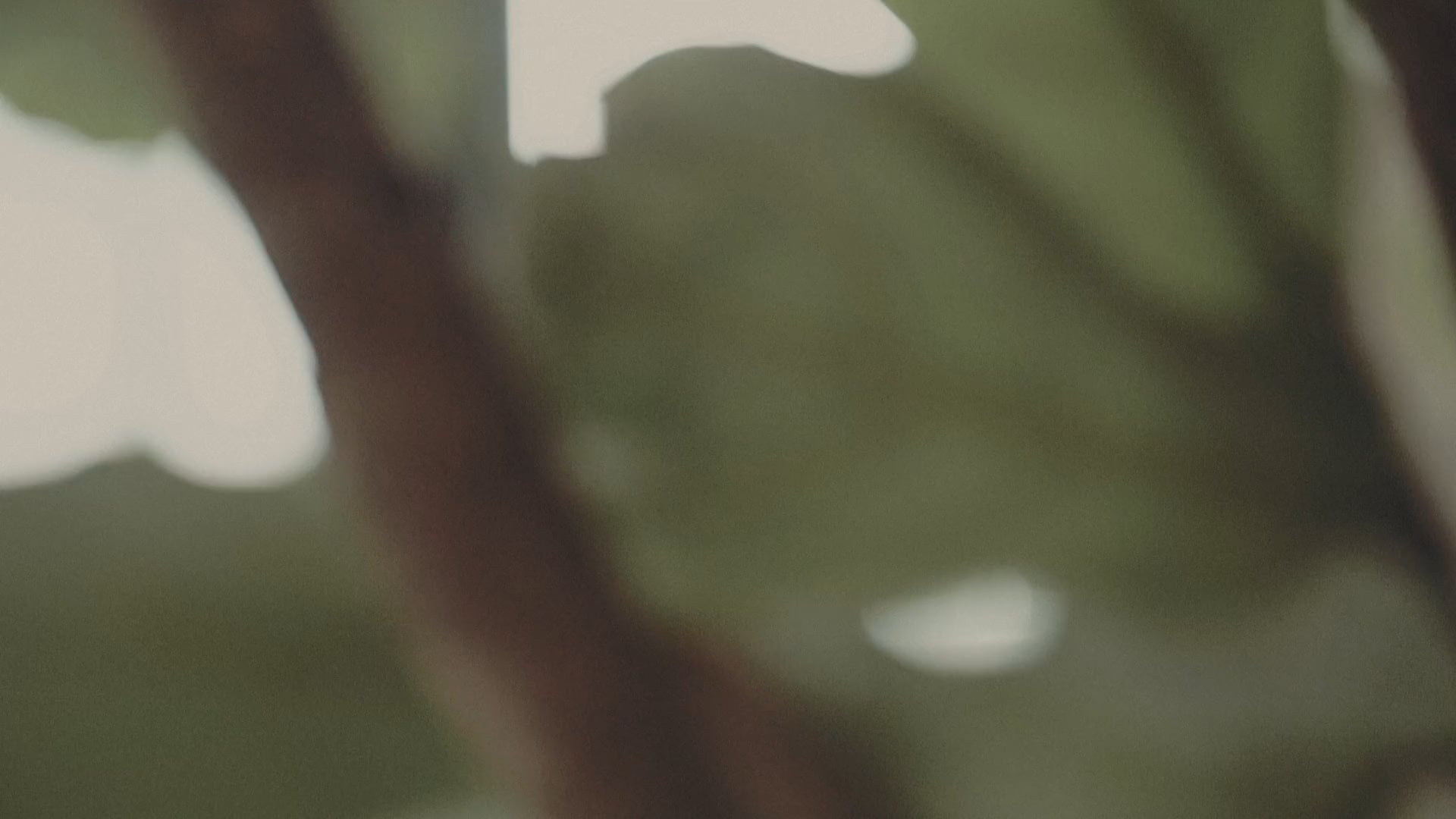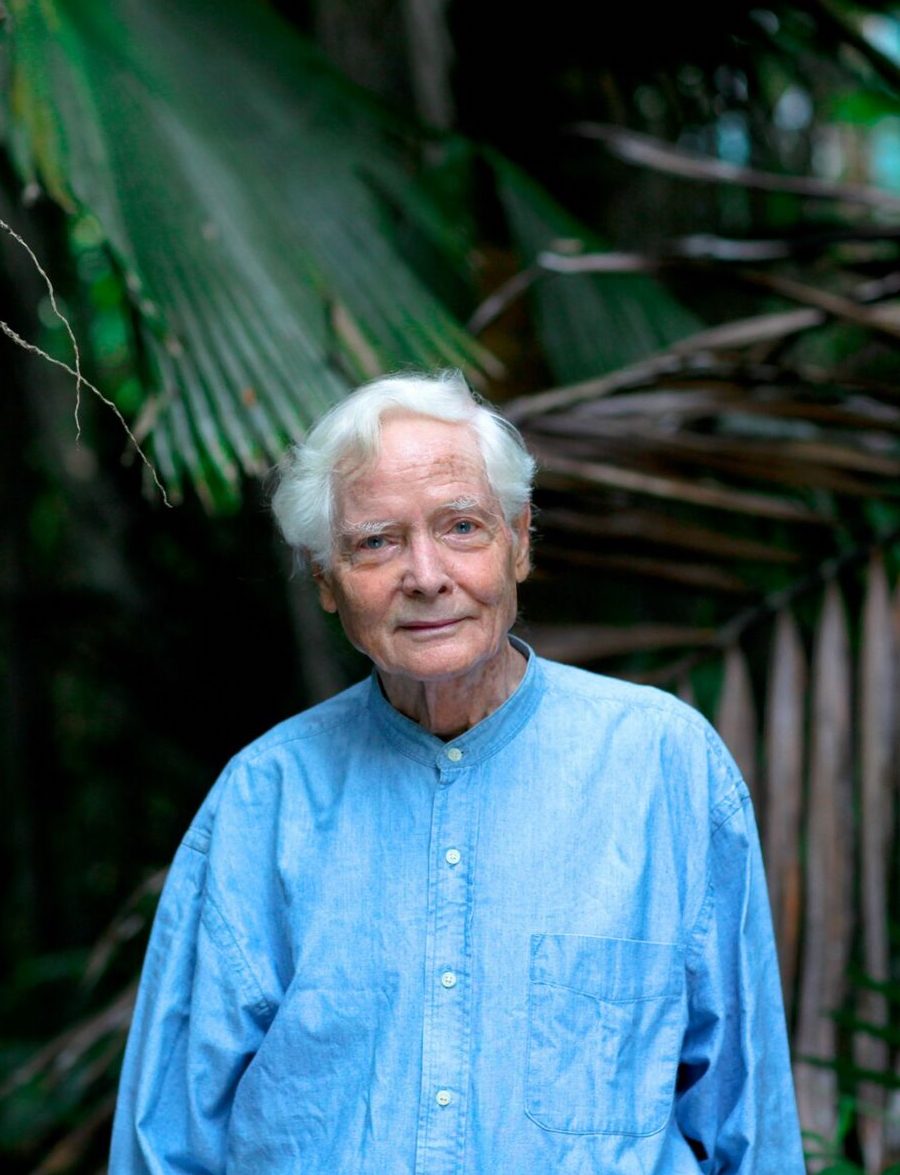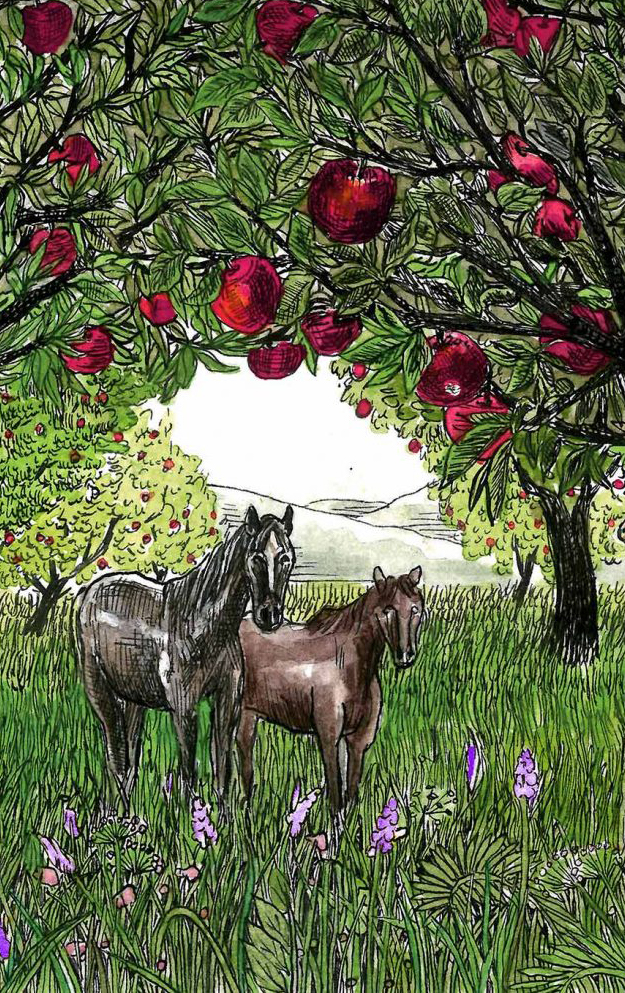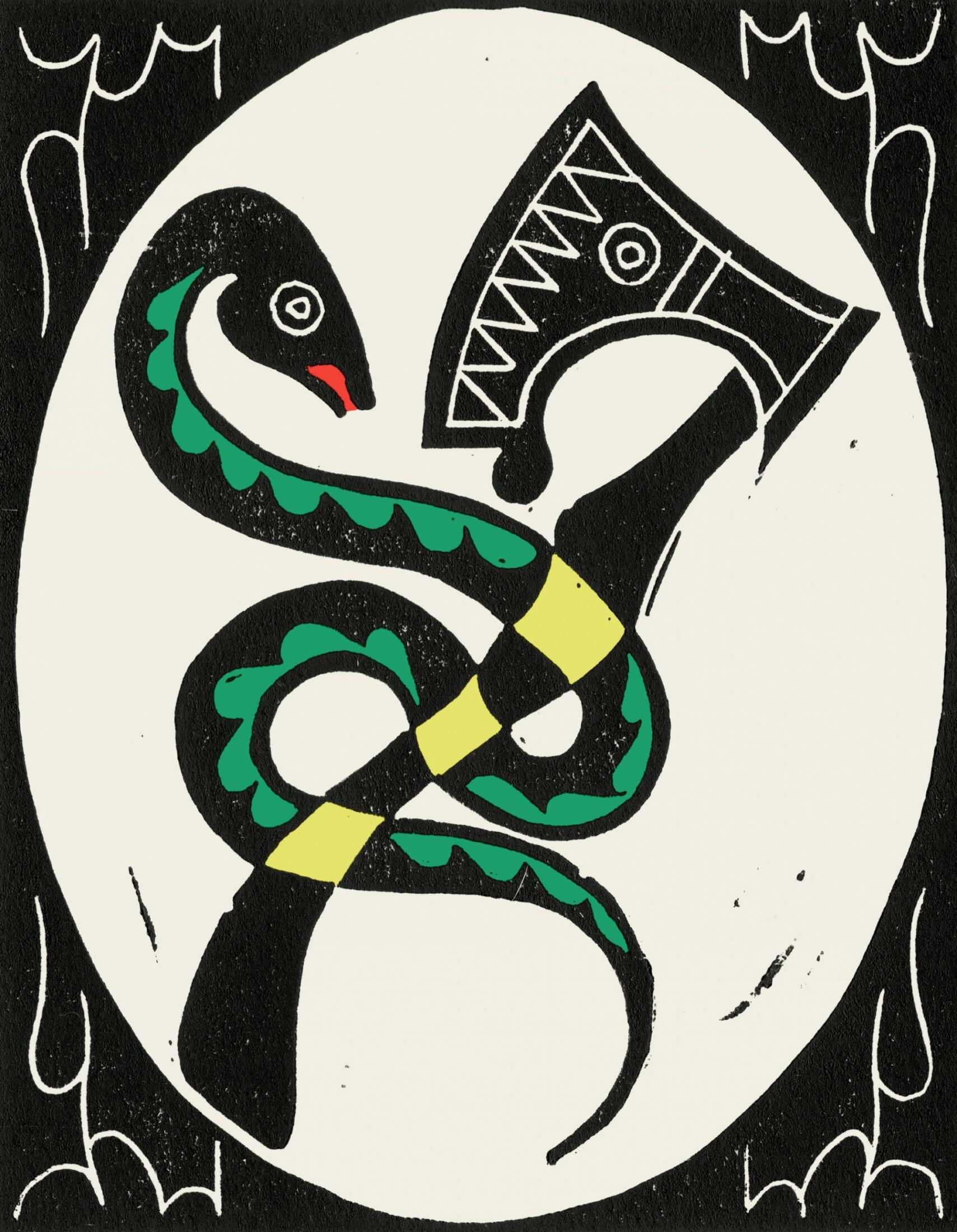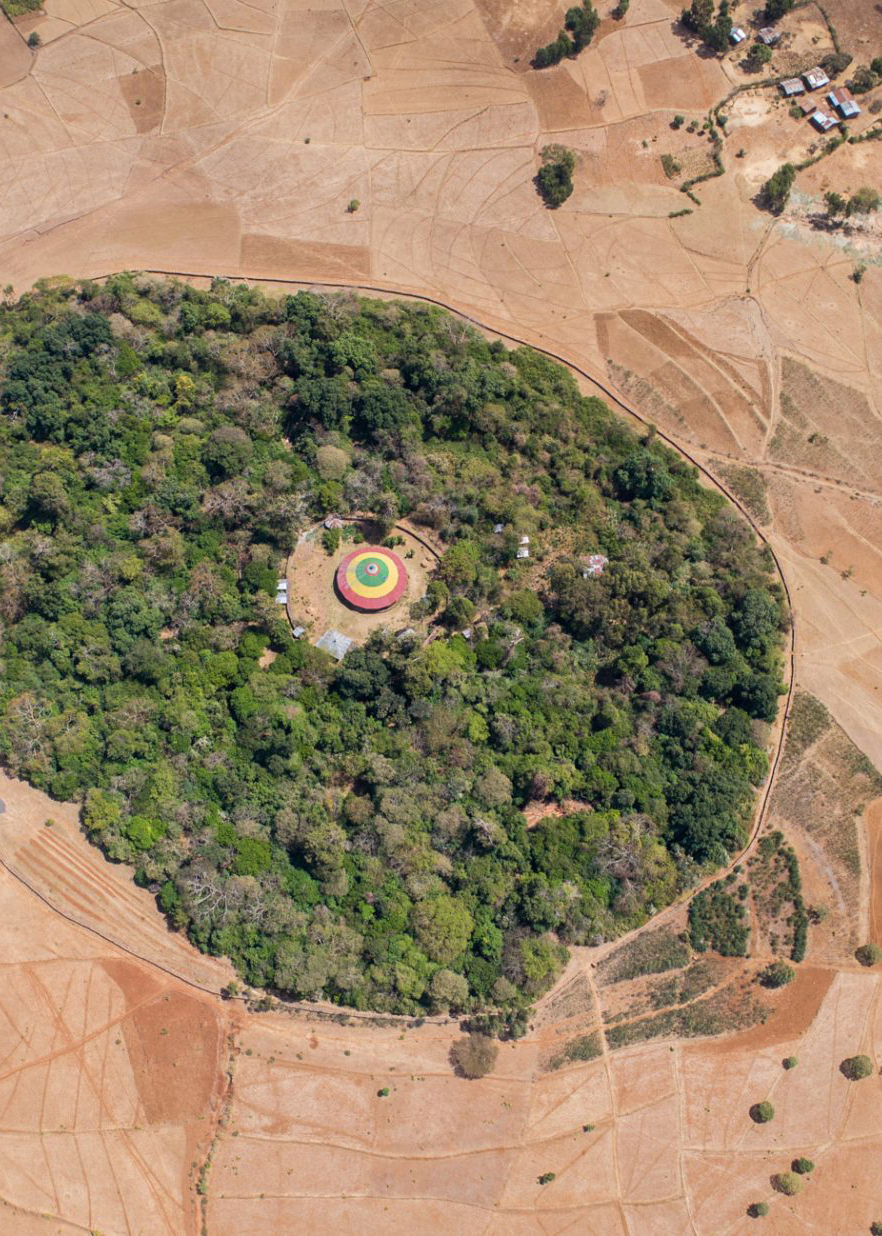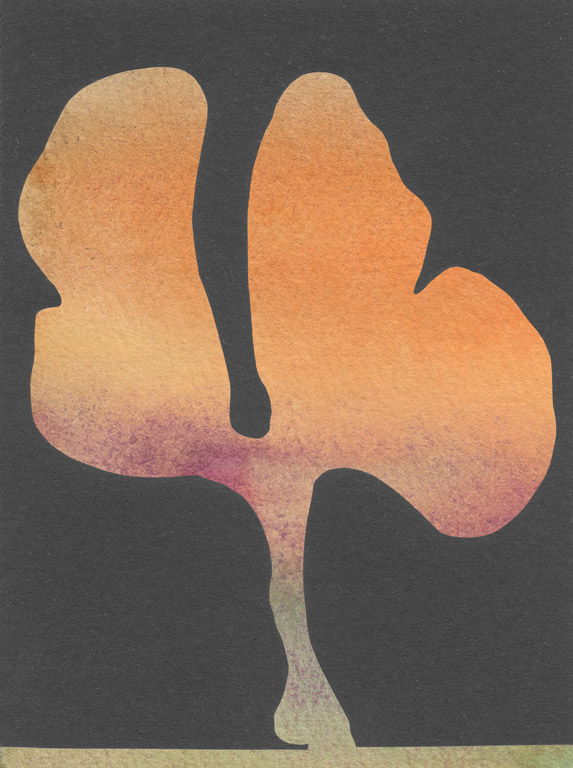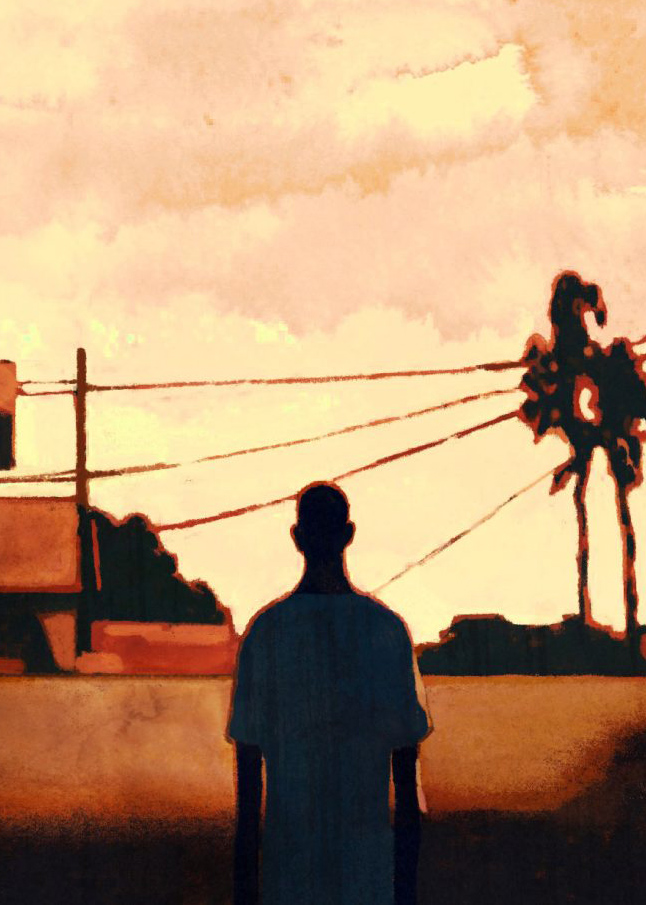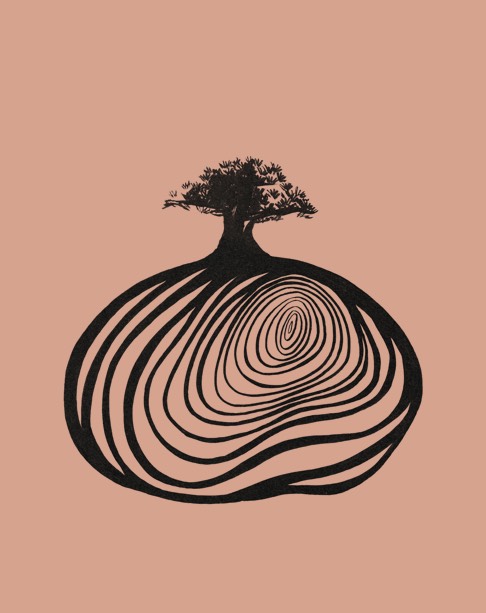Carl Phillips is the author of Wild Is the Wind, Reconnaissance, Silverchest, and Riding Westward. His collection The Rest of Love won the Theodore Roethke Memorial Foundation Poetry Prize and the Thom Gunn Award for Gay Male Poetry, and was a finalist for the National Book Award. He is the recipient of numerous honors, including: the Kingsley Tufts Poetry Award, the Lambda Literary Award, the Pushcart Prize, the Academy of American Poets Prize, and fellowships from the Guggenheim Foundation and the Library of Congress.
In this extended meditation on the relationship between place and intimacy, the body and the word, Carl Phillips walks among trees to explore what can and cannot be known.
What happened back there, among the trees, is only as untenable as you allow yourself or just decide to believe it is. It happened, and now it’s over. And the end feels—to you, at least—both like the end of a long pilgrimage and like the end of a well-reasoned, irrefutable argument, which is its own form of pilgrimage: don’t both depend on stamina and faith, in the right proportions? Wasn’t the point, at the end, persuasion?
I used to speak in terms of shadowlands, by which I meant, I think, some space where what transpires between two bodies and what gets transacted almost look the same. I’d say a thing like
There’s a kind of shadowland that one body makes, entering
another; and there’s a shadowland the body contains always
within itself, without resolution—as mystery a little more
often, perhaps, should be …
and I’d call it a poem, and it looked like one, but how it felt was more like saying aloud the words “rescue me” long enough that it almost seemed plausible that mere saying could turn the light to twilight, and the twilight dark. I lived in the world that, for lack of a prettier word, I’d call tangible, where risk meant risk, it seemed, and violation violation, not psychological but solid things, for they each cast a shadow as only a solid thing, so I’d been told, could, though I had tried to touch them—violation, risk—and each time my hands touched nothing.
My earliest memory of trees is of a particular fig tree in the yard of the first house I remember, in Portland, Oregon. I was five, at the most. Sometimes what I remember is playing in the shade of it, and at other times the bees that seemed to bloom from inside the windfalls—though it seems now to have been less the wind that brought the fruit down but the weight of ripeness itself, as if sweetness, too much sweetness, meant mistake, punishment therefore; for hours, I’d watch the bees enter and leave the split-open sides, and how the figs looked lonely, once the bees had gone, as if to be plundered meant at least not being alone …
One evening, instead of coming inside when called, I climbed the fig tree, wearing only a tee shirt and underpants. It seemed like a game, to be up in the tree, and my parents not able to find me, calling my name as they wandered the yard. And then somehow, I fell, and then suddenly stopped falling: my underwear had caught on a branch, saving me from hitting the ground, but holding me in midair, unable to get down. The way I remember it, my mother told my father to get a ladder.
What’s very clear in memory is my father saying I should hang there in the tree for a bit, to learn a lesson about disobeying my parents.
I find no evidence, in my sixty years of knowing him, that my father is particularly attentive to historical resonances when it comes to our daily lives, but I can’t help thinking about the place of trees in African-American history, as the site for lynching. How strange for my father, an African American, to find it a fitting punishment to leave his son hanging in a tree at night.
My earliest memory of humiliation is of a particular fig tree in the yard of the first house I remember. Who can say how related this is to my refusal, all my life, to believe forgiveness exists?
Some trees are compasses, and some are flags. If a flag tells you where you are, a compass can potentially tell you how to get there or how to find someplace else. A flag, in marking a spot, seems more definitive, a form of punctuation; a compass implies movement, navigation. I know a man who, whenever he needs to write, or cry, or think—really think—goes to a willow in his local park and hides beneath its draped branches. He goes there so often, you could almost say he’s become part of the willow; he seems a willow himself; he marks a place in my life where I stopped to rest, once, but I couldn’t stay. Then there’s another man, long ago now. His body a forest when seen from the air in a small plane, so that it’s possible to get close enough to see where the oaks give way to poplar trees, or where, if you follow the pines far enough, they’ll open out to a field across which you can see the ocean. I couldn’t have found my way here without him.
Despite my childhood mishap with the fig tree, and despite fairy tales, in which the forest so often contains danger—witches ready to shove children into ovens, wolves masquerading as harmless grandmothers—I’ve had a love of trees all my life. Throughout high school, I lived in a house in the woods in Massachusetts, and even on the darker mornings of winter what kept me from being frightened was the trees themselves—mostly scrub pines, as we called them there, with struggling oaks scattered among them. Unlike the kids at school, the trees remained silent as I passed, and I took this as a sign of acceptance. Irrational, sure—but in my feeling so unlike everyone else at school, in my confused wrestling with what I felt was real but I couldn’t name precisely, why not take silence for acceptance? Among the trees loneliness could be itself, in the open—so could strangeness—even as both remained hidden from the rest of the world for the time it took me to pass through the woods to the bus stop. As I walked, I’d sing to the trees, loudly at first, then more and more softly the closer I got to where the woods gave out, until all I could hear was whatever wind there was through the leaves and needles. A sound like the trees unable to sing back, but trying to.
As with myth, fairy tales often seem designed to explain something very real in surreal terms. The story of Red Riding Hood might as easily be a way to warn about the fact of dangerous animals in the woods as to suggest that potential criminals might be encountered. The secrecy that a forest provides makes it the perfect setting for crime. Also for intimacy, which has often been deemed a crime. It makes sense that woods and forests have long been a queer space. Queer, not just in the sense of strangeness or alienation—going back to my relationship to the woods in high school—but in terms of sexuality, the woods as a space in which to hunt for sex. What is cruising, if not a form of hunting, if not to pass, as animal (the act of sex is perhaps our most animal manifestation, as humans), in pursuit of another human who has chosen for the moment to yield more entirely to the animal that each of us carries inside?
Was like when the body surrenders to risk, that moment when an unwillingness to refuse can seem no different from an inability to, though they are not the same—inability, unwillingness. To have said otherwise doesn’t make it true, or even make it count as true. “Yes, but what does the truth matter now,” I whispered, stepping further inside what, by then, was night, almost. The tamer animals would soon lie down again, and the wild go free.
It’s not just the convenience of the woods—its ability to conceal, to keep a secret—that makes it a likely site for sexual behavior that isn’t societally condoned. Trees are utterly natural, or the collections of trees called woods and forests tend, anyway, not to have been artificially constructed (as compared with parks or public gardens). And this natural context for sexual intimacy can give, if not a sense of wholesomeness exactly, then a sense of permission, at least, to what can feel like—what we’ve been made to feel is—transgression; if only temporarily, the trees erase the shame that drove us to seek hiddenness in the first place. Or if shame didn’t drive us there, a reasonable fear likely did. And then—remember?—that well-worn path where we found one another, the trees to either side like a lengthy convoy of fears that kept diminishing, the more south they shuffled—until there was no fear.
At this point in my life, I’m not always sure how much of what I think about my life among trees—in forests, in woods—actually happened, how much is imagined, and how much is what I’ve read and somehow superimposed over my own actual experience—everything from Sir Gawain and the Green Knight—the forest as the site of quest and conquest, riddle and answer—to those passages in Tolkien’s The Hobbit and The Lord of the Rings where so much travel is done under cover of night through forests. In the Tolkien, especially, while there is plenty of potential danger, so many of the scenes have to do with camaraderie and trust and an intimacy that isn’t sexual at all. Or I think about Randall Jarrell, whose poetry often revisits fairy tale, and seems especially fascinated with what goes on in the woods—specifically, Jarrell seems to want to rewrite fairy tale and the psychology of it. The forest is an example of “the lost world” that he’s always seeking, where the witch who would kill children is transformed. Here’s the end of his “The House in the Wood”:1
Here at the bottom of the world, what was before the world
And will be after, holds me to its black
Breasts and rocks me: the oven is cold, the cage is empty,
In the House in the Wood, the witch and her child sleep.
The house is held by the wood, the mother and child are held by the house, perhaps the mother is holding her child. Which is to say the poem’s in part about enclosure as a form of security, and about nurture, the very opposite of what the witch conventionally stands for. The wood, in effect, reverses evil to the good it began as, or that’s the wish, a human one, with which the wood in the end has very little to do. In that same poem, Jarrell reminds us that
… after the last leaf,
The last light—for each year is leafless,
Each day is lightless, at the last—the wood begins
Its serious existence: it has no path,
No house, no story; it resists comparison …
So there are the trees of literature, floating somewhere in my head, always. Then there are all of my actual adventures and misadventures among trees throughout my life. And then there are the stories that maybe began with a shred of fact but got transformed in the course of my making a poem. Jarrell, again: “Which one’s the mockingbird? which one’s the world?”
They moved together in groups, and singly.
They moved among the trees as among the parts of a language they’d forgotten they knew.
Pitch pine, sycamore, maple, oak, and birch.
Humiliation, loneliness, permission, sex, and shame.
Memory, innocence, forgiveness. Willow. Willow.
Another way of thinking, though, about this interplay between reality and imagination when it comes to memory is that I’ve lost track of what happened, versus what serves as camouflage for what happened—camouflage in the form not just of trees but of the context they become for the stories that I tell in poems. In a sense, the poems themselves are trees, or tree-like, in that they become a place where what’s difficult and/or forbidden can have a place both to be hidden and within which to feel free to unfurl and extend itself. Here’s how I spoke of the forest once:
…I lived, in those days, at the forest’s edge—
metaphorically, so it can sometimes seem now, though
the forest was real, as my life beside it was. I spent
much of my time listening to the sounds of random, un-
knowable things dropping or being dropped from, variously,
a middling height or a great one until, by winter, it was
just the snow falling, each time like a new, unnecessary
taxonomy or syntax for how to parse what’s plain, snow
from which the occasional lost hunter would emerge
every few or so seasons, and—just once—a runaway child
whom I gave some money to and told no one about,
having promised …
And here is a different way since then:
There’s a forest that stands at the exact center of sorrow.
Regrets find no shelter there.
The trees, when they sway,
sway like the manes of horses when a storm’s not far.
There’s no reason to stay there,
nothing worth going to see,
but if you want to, you can pass through the forest
in the better part of a long day.
Who would want to, though?
Story, versus information. Lyric, versus didactic. Long, periodic sentences, versus clipped, straightforward ones. Catalpa trees aren’t hawthorns. I’m not the man I was.
Song travels differently in forest light.
They lay where they’d fallen, beneath the forest’s canopy. And at first when they woke, it was as if the forest, besides containing them, was itself contained, as in a snow-globe when it’s been shaken and just now set down, except instead of snow, just shadows falling, like snow, in pieces that it was as useless to try to hold on to as catching snow on the tongue—“to catch us is at once to know us and to lose us,” said the shadows, falling like snow, gathering in shadowy, steep banks on which the light, being light, depended.
To know where we came from—and what we came through—doesn’t have to mean we know any more clearly where we are, except not there, anymore. The forest begins where civilization ends, so I’d been told. Past here be monsters. Past the meadow; past harvest. Past daylight into forest light—for it’s never all darkness, beneath the trees, not even at night; not even on a moonless night. Song travels differently in forest light. Everything’s different.
That the forest itself contains no apology doesn’t mean you’re not hurt. Or I’m not sorry. Or I didn’t hurt you.
Toward the end of Marilyn Nelson’s poem “My Grandfather Walks in the Woods,” the grandfather asks the trees a question, and “They answer / with voices like wind / blowing away from him.” That’s one way of putting it, for their voices can sound like wind. What matters more, I think, is that in the language of trees there’s no grammatical mood: questions, statements, commands—it’s all song, stripped of anything like judgment, intention, or need. This makes translation especially difficult. Though I know parts of many of their songs, I’ve only three by heart: “Yes, you can tell me anything,” and “No, even we can’t help you,” and “If I were you, I’d be the lostest, lostest boy I know.”
In the dream, I’d bought a large house in a large city, a house that came with a backyard so thick with trees that by summer, by then in full leaf, they blocked all views of the high-rises to the north, of the neighbors to the west, while to the east through the leaves of an old pear tree I could see the cathedral dome, on top of it a cross caught the sunlight and tossed it back. Besides the pear, there’s a high-rise-sized pin oak, two dogwoods, two catalpas, a chestnut, before the yard ends in a stand of bamboo I’ll eventually lose almost all of, as the dream continues. When I wake, it’s as if to another dream, though it feels no different: I become briefly silver, as in what the leaves mean, beneath. Bells are ringing. No, the leaves are falling. Now the bells start ringing. Sudden scattering, all around me, of leaves, all gold.
- Excerpts from “The House in the Wood” and “The Mockingbird” from The Complete Poems, by Randall Jarrell. Copyright © 1969, renewed 1997 by Mary von S. Jarrell. Reprinted by permission of Farrar, Straus and Giroux.
